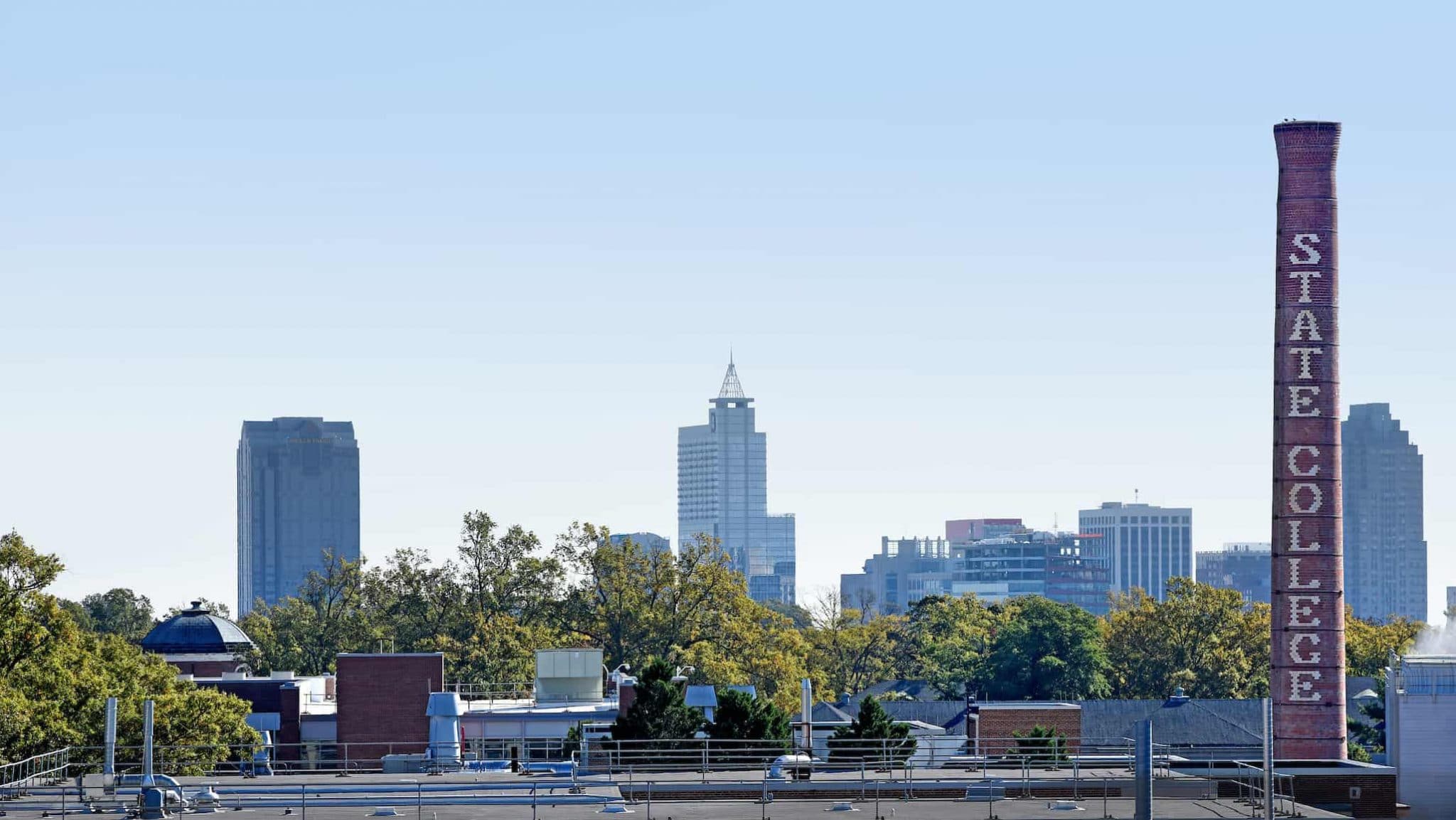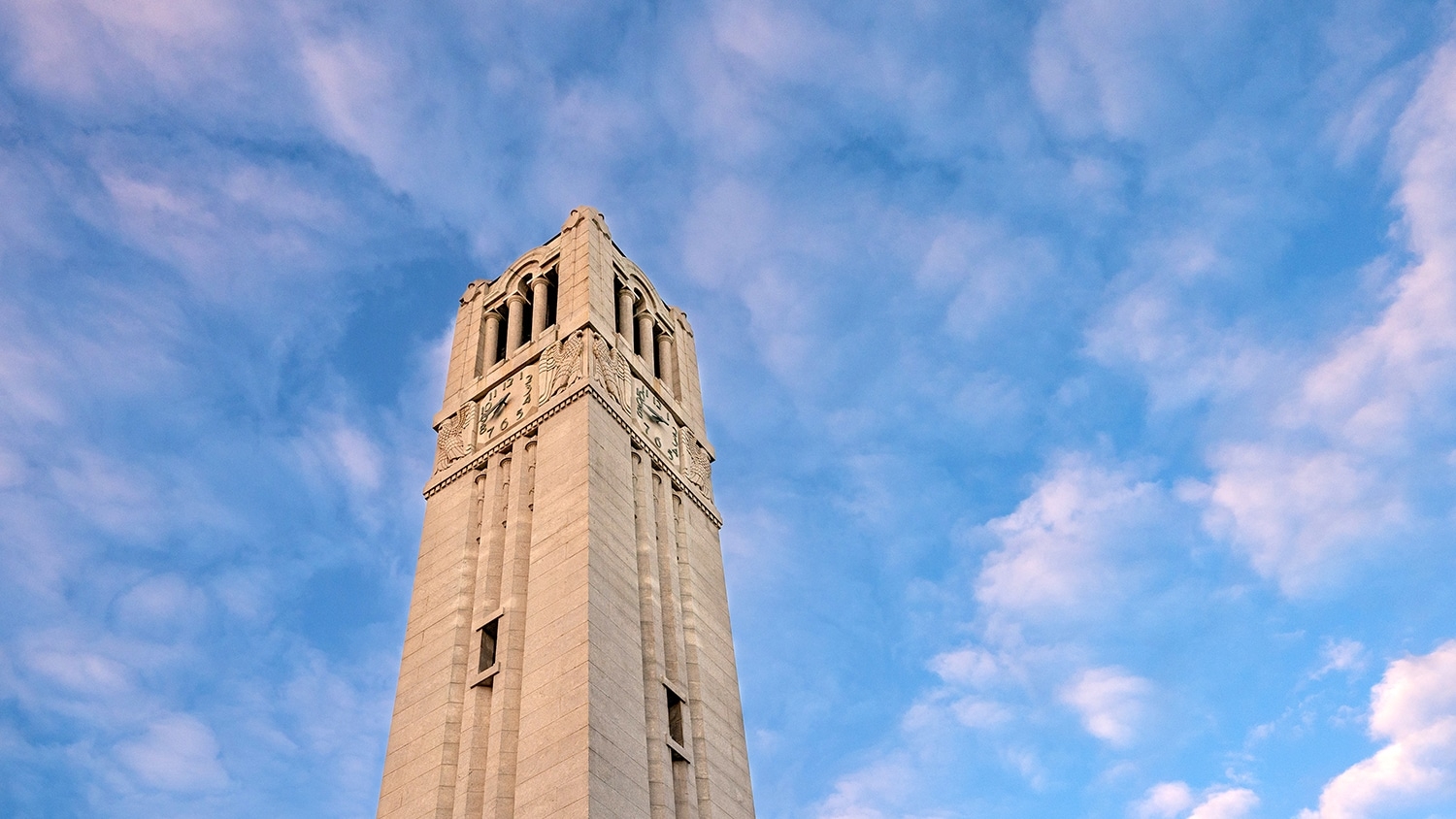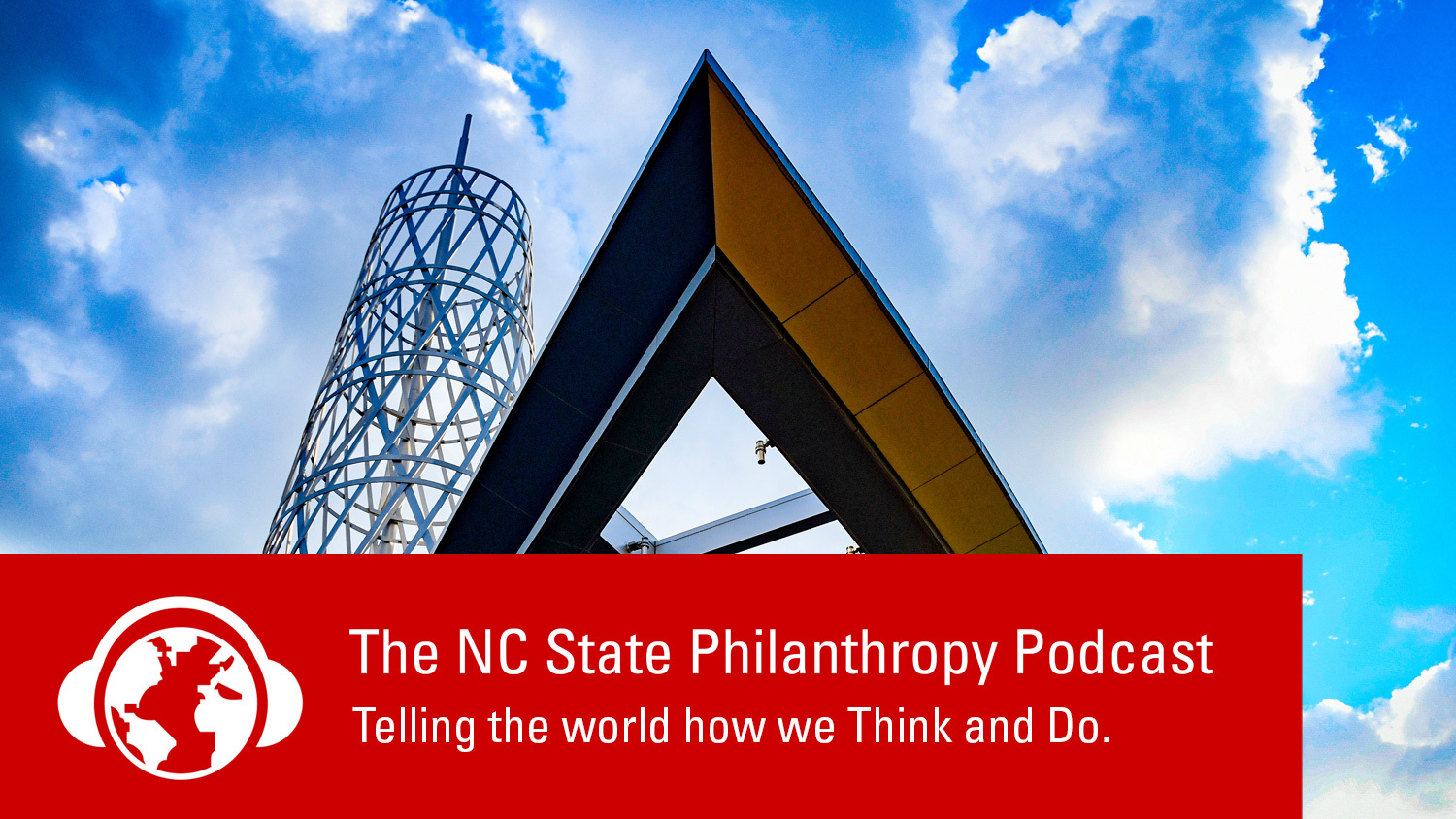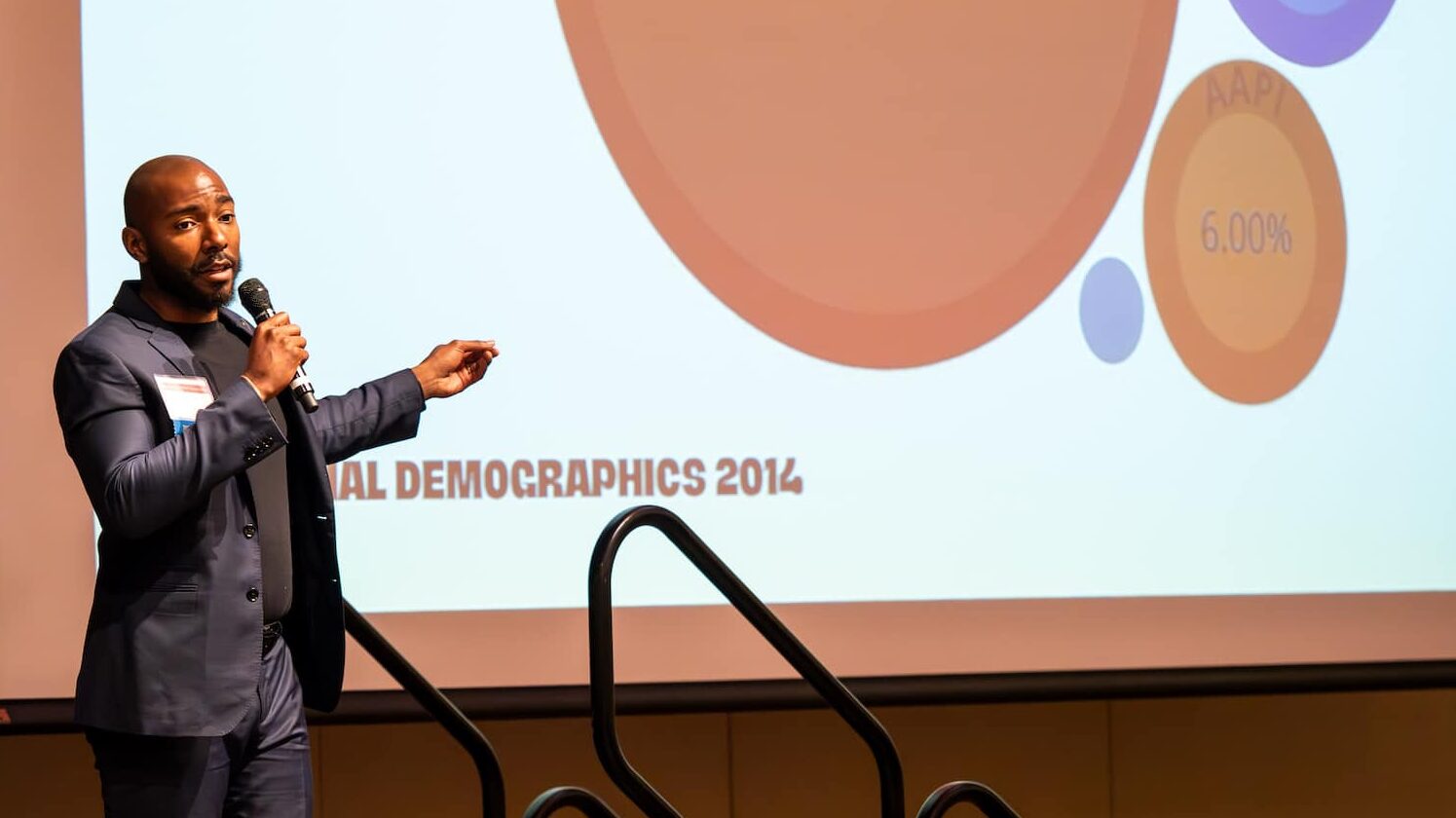Mentor Lunch Program Connects Students With Alumni

For many undergraduate students, entering the workforce is full of questions about career choices, workplace culture and networking norms. A College of Sciences program is hoping to provide answers and better prepare students for their futures beyond NC State’s campus.
The idea for the Mentor Lunch Program was brought to the college by Bob Starbuck, a master’s and Ph.D. alumnus in statistics and a member of the College of Sciences Foundation Board of Directors. Starbuck was inspired by a similar program in the College of Engineering.
The primary goal of the program is to open students’ eyes to career prospects and give them opportunities to network with professionals who may share some interests and experiences with them. It’s also opening the professionals’ eyes to how much they have to share. “There are people who just don’t realize that they have a wealth of knowledge that’s valuable to our students,” Starbuck said.
For the initial phase of the program, Starbuck recruited members of the foundation board to serve as mentors. These mentors committed to taking one group of 2-4 students per semester to lunch on campus at the mentor’s expense. Students chose a mentor to lunch with based on profiles the mentors completed that included their names, professional affiliations and brief biographies.
During the first round of lunches, held between February and April, 13 mentors and 32 mentees met at the 1887 Bistro in Talley Student Union.
The lunches had no set agenda, with discussion completely driven by the mentor and students. Starbuck said one of the primary topics during his lunch was questions about career paths. “The students were expressing honest concerns and looking for validation about the career choices they are trying to make,” he said.
By discussing his own career history, he was able to help the students see how their careers could evolve over time.
The lunches serve as the main interaction point, but students are also encouraged to contact their mentors throughout the year with questions. Starbuck said he’s been in touch with several of his mentees since their lunch, helping one learn SAS programming and assisting another with setting up some informational interviews with prospective employers.
Alexander Moore, a junior majoring in statistics, participated in this first round of lunches. His mentor was Alan Menius, biochemistry alumnus, chair of the foundation board and chief data scientist with HAP Innovations.
“I wanted to participate in the mentoring lunch because I felt somewhat unsure about what my future would look like,” Moore said. “I wanted to hear from somebody who was once in a similar situation as me and learn how he overcame obstacles and got to be where he is today.”
“Dr. Menius talked to us about what he does on a regular basis, and I found it very interesting to learn what a day in the life of a data scientist is like,” Moore said.
Starbuck is looking for ways to expand the program, including opening it up to more mentors and students. He emphasized that even though the primary goal is to help students, it also benefits mentors by helping them transfer their valuable knowledge to the next generation of scientists — and maybe even helping them find future employees. It also helps the university by encouraging more alumni engagement.
“It’s a win-win-win situation,” he said.
- Categories:


